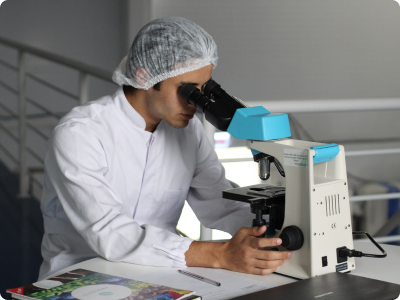On February 13th 2024, the European Commission granted authorization to CASGEVY – the first CRISPR/Cas9-based gene therapy produced by Vertex Pharmaceuticals.
Targeting patients with Sickle Cell Disease and transfusion-dependent Beta Thalassemia, the European scientific community eagerly expected the approval of CASGEVY as this therapy shows great transformational potential for patients.
“Sickle cell disease and transfusion-dependent Beta Thalassemia are debilitating, life-shortening diseases associated with significant burden on patients, families and health care systems. CASGEVY offers the potential of a functional cure, and it will be important to offer this therapeutic option to eligible patients as soon as possible”
Franco Locatelli, M.D., Ph.D., Director of the Department of Pediatric Hematology and Oncology at the Bambino Gesù Children’s Hospital
CASGEVY is a one-time potentially curative therapy that was already approved by the US, UK and the Arab Emirates – one of the countries that have the highest prevalence of Sickle Cell Disease and Beta Thalassemia.
Gene editing methods are nothing new to scientific research but the landscape transformed dramatically after the publication of a groundbreaking research paper “A programmable dual-RNA-guided DNA endonuclease in adaptive bacterial immunity” by Jennifer Doudna and Emmanuelle Charpentier in 2012. This paper published in the Science journal, introduced CRISPR-Cas9, a revolutionary gene editing tool with remarkable precision, ease, and speed.
CRISPR (Clustered Regularly Interspaced Short Palindromic Repeats) was first defined in the early 2000s by the Spanish scientist Francis Mojica, who noticed regularly spaced repeats in the DNA sequence of prokaryotic microorganisms. After years of research, it became clear that this was a natural system used by bacteria to protect themselves from infection by viruses.
This discovery was brought even further by Jennifer Doudna and Emmanuelle Charpentier in 2012. Unlike prokaryotes, which cannot survive DNA cuts, eukaryotes activate a repair mechanism to rebuild their DNA. Using this natural repair process scientists can program a molecular pair of scissors to make precise cuts in DNA.
This technology can identify and disable defective genes in human blood responsible for various diseases by targeting specific DNA sequences. CRISPR is now at the forefront of genetic research and applications due to its efficiency and accessibility.
Today, Emmanuelle Charpentier’s company CRISPR Therapeutics is collaborating with Vertex Pharmaceuticals – a company which leads the way in developing, manufacturing and commercialising CRISPR-based therapies. Their long-lasting efforts came to fruition with the international approval of CASGEVY.
“With this approval, CASGEVY is now approved for sickle cell disease and transfusion-dependent beta thalassemia in multiple geographies making tens of thousands of patients eligible for this potentially transformative therapy. Now our goal shifts to translating these approvals into real-world patient benefit and ensuring access and reimbursement across the globe”
Reshma Kewalramani, M.D., Chief Executive Officer and President of Vertex
Authored by ATMP.ie team, based on the sources cited below.



